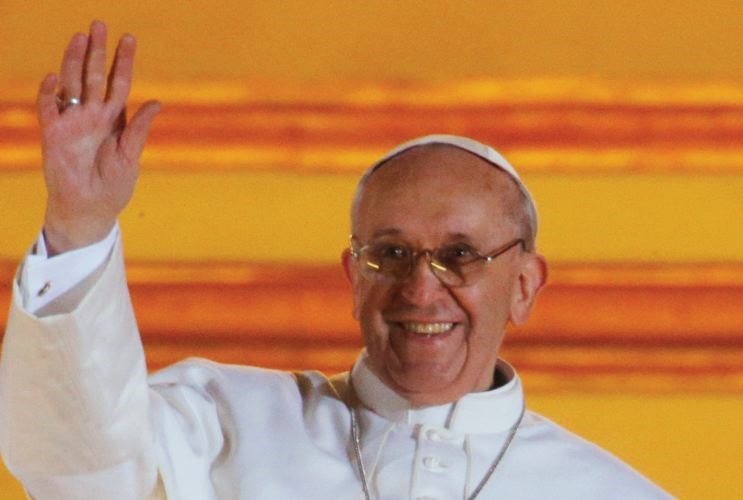The Vatican City conclave of cardinals wasted no time deciding Jorge Mario Bergoglio, Archbishop of Buenos Aires will be the next pope.
At the end of the second day of balloting Wednesday, the 76-year-old Bergoglio became the first non-European cardinal and the first Jesuit ever to be named the Supreme Pontiff. The news was welcomed by Father Richard Beaudette, the administrator for the Diocese of Prince George administrator.
"I think it's great that they were able to elect a pope so quickly," said Beaudette. "Sometimes it can take up to a week and this was very fast. The fact they elected a cardinal from South America I think signals a realization that the church is really universal, that we're not just a European or North American church. We are universal and we all come with many different gifts from different cultures. Someone coming from a non-European culture brings new gifts to the church and that's a real bonus for us. There will be a new kind of energy because he comes with an all-different experience of church. His choice of name, Francis, Francis of Assisi was someone who had a real concern for the poor and the needy and a concern for the environment. That's a very different perspective from the culture of his time and maybe with this pope there will be a new perspective in the church with regard to some of the issues facing us in the world."
Bergoglio, who will be known as Pope Francis I, is known as a conservative who studied under Emeritus Pope Benedict XVI, and will have to face the sex abuse scandals that have rocked the Catholic church. He also is likely to encounter serious discussions about homosexual marriage, abortion, contraception, lagging church attendance, the inability of priests to marry, the lack of women in church positions of power, and fewer nuns and students entering seminaries.
"I think, as a church, certainly as an institution in some ways we've become maybe a little bit isolated from society around and I think we need to face those things and deal with them," said Beaudette. "We need to have a concern for those who are least cared for in our society, those who have been hurt and those who are in need of special care."
Church attendance in decline is a problem all over the world but especially in North America and Beaudette says it's not just the Catholic church that is suffering. He can't predict if the new pope will have an effect in filling the pews for mass but that hope is spreading within the Catholic community.
"I'm not sure how we change that, we keep trying to respond to the needs of the people around us to reach out," said Beaudette. "Attendance isn't what it was 40 years ago, but there is a spirit within the local church and certainly those who are there are committed to living their faith and are inviting others to be part of that as well."
Beaudette would have liked to have seen Canadian Marc Ouellet emerge as pope. In the lead-in to Wednesday's deciding vote, the Quebec cardinal was predicted as one of the frontrunners for the job.
"If nothing else, it gives us a greater pride in who we are as Catholics, that one of us, one of own Canadians, would have been considered to be a contender," said Beaudette. "The thing we have to remember is when the cardinals go into conclave, every cardinal is a candidate. It's not a political race. There were 115 candidates."



